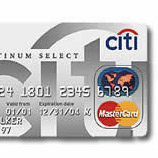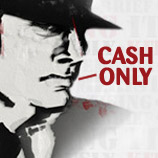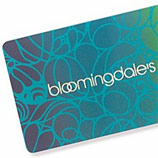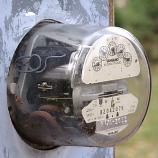../../../..//2009/01/02/new-york-city-doesnt-publicize/
New York City doesn’t publicize it in any way, but they offer a guaranteed reduction on parking ticket fines if you challenge the ticket in person, online, or via mail.[New York Times]
Thanks for visiting Consumerist.com. As of October 2017, Consumerist is no longer producing new content, but feel free to browse through our archives. Here you can find 12 years worth of articles on everything from how to avoid dodgy scams to writing an effective complaint letter. Check out some of our greatest hits below, explore the categories listed on the left-hand side of the page, or head to CR.org for ratings, reviews, and consumer news.
../../../..//2009/01/02/new-york-city-doesnt-publicize/
New York City doesn’t publicize it in any way, but they offer a guaranteed reduction on parking ticket fines if you challenge the ticket in person, online, or via mail.[New York Times]

Here’s a good example of how to write an effective Executive Email Carpet Bomb, or EECB, to break through the “please hold” purgatory of the company’s phone system. Alicia’s car’s bumper was scratched by a Best Buy employee, and calling consumer relations as directed proved fruitless. Now she’s got a check in her hands from Best Buy to pay for the repairs.

../../../..//2008/11/20/if-you-have-an-account/
If you have an account with Mint, and you’ve enabled mobile alerts, you can now text “Bal” or “Balance” to 696-468 (MyMint) and receive a summary of all of your accounts. [Mint]

../../../..//2008/11/18/are-you-so-loaded-that/
Are you so loaded that you exceed the FDIC’s guarantee limit for deposits? Consider the Certificate of Deposit Account Registry Service. Deposit the funds at one of 2,500 CDARS member banks and they’ll automatically spread your cash among other member banks as needed to stay within FDIC coverage limits. Kiplinger says, “You’ll earn one rate (set by the home bank) and get one statement and one form at tax time.” [Kiplinger]

Nicole was hit with a surprise 6 point interest rate increase on her Citicard, so she fought back. Her story is a good reminder that you should look at all of your options and be prepared to argue on your behalf, even if you’re not in a position where you can just pay off the entire balance and walk away.

Our post last Friday gave people some great business ideas. We appreciate the offers, but we must insist that you do not try to purchase Consumerist with doodle currency that you have minted yourself, probably while drinking. You can, however, try to bail out the auto industry with it if you want.

David didn’t have the money to pay his account (for some mystery service—we don’t know what), so he decided to see if they’d accept a drawing instead. Turns out they won’t. The email exchange that follows is hilarious, and much more entertaining for both parties than the old put-the-wrong-check-in-the-envelope trick.

On Meghann’s post about a reader who fell for a locksmith scam, the aptly named commenter “yetiwisdom” left a great tip for never getting locked out your car again:

Ramit over at I Will Teach You To Be Rich has thrown down a challenge. Can you save $1,000 in 30 days? He, like us, is annoyed with crappy frugality tips that will save you $1 a week, and promises to post decent money saving tips every day in November. If you follow them, he thinks you’ll be able to save $1,000 in 30 days.
../../../..//2008/10/15/here-are-11-secrets-to/
Here are 11 secrets to detailing your car like a professional. [CNN]

Kiplinger has two quizzes named “Financial Truth or Bunk?“, and they go through some of the more popular tips you’ve heard about personal finance, including lines like:

Jennifer says National City Bank has contacted her fiance to inform him that the stop payment order he placed on a check is about to expire, and he’ll have to pay another $32 fee to renew it for six more months. She writes, “Have you heard of stop payment now only being ‘suspend payment for six months’? This seems to me to be extortion.” We’re going to come down on the side of the banks in this case—but because of the recurring nature of the fee, it might just be cheaper to close the account.

Luke writes, “I recently had a package delivered to me by UPS, and by ‘delivered’ I mean that they left a little yellow slip stating that they showed up and left.” Thanks to a burst of anger, he figured out how to get past the phonebot that intercepts calls. It turns out you don’t even need to add the curse word to the end.

We talk a lot on this blog about personal data and privacy, but not so much about how to secure that data on your own computer. That’s because a.) we’re not Lifehacker and b.) the solutions frequently bloat into crazy, jargon-filled recipes that scare away the non-IT crowd. Not this time! For all you novices, here is a single idea you should consider that will help keep your personal data personal, and make your identity that much harder to steal.

Pam had a Bloomingdale’s gift card that went unused for a couple of years, and when she tried to spend it last weekend, she was told it had expired. Pam found a way to get the balance restored fairly quickly, though. If you’ve got a card from before February 2008, try Pam’s advice below.

In the course of searching for a new place to live in Minneapolis, I found a great condo right in the area I was looking for, renting for $900/mo for a 1 bedroom which included electricity, gas, water, sewer, garbage, cable, and high speed internet! Sound too good to be true? You bet…it was a scam.

As several readers discussed in yesterday’s post, utility, phone, and cable companies usually require your Social Security number in order to perform a credit check before activating service. You don’t have to provide it, but they don’t have to extend their services to you either. Here’s one reader’s explanation of how he was able to turn on water, electricity, gas, and an AT&T land line without turning over his SSN.
![]()
Part of ![]()
Founded in 2005, Consumerist® is an independent source of consumer news and information published by Consumer Reports.
